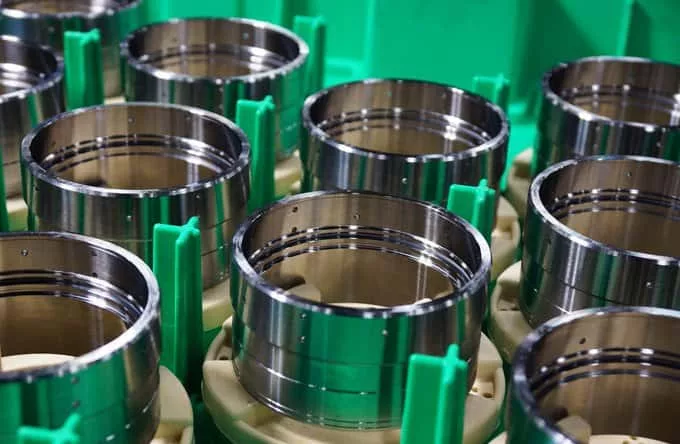For the sixth consecutive quarter, one measure of the state of affairs in the auto supply industry is reflecting ongoing pessimism, and it comes from a reliable source.
The Original Equipment Suppliers Association, headquartered in Southfield, Michigan, has released its 4th Quarter Supplier Barometer Index for 2019 and it shows “protracted uncertainty” weighing heavily on the minds of parts suppliers to the auto industry, driven in part by the skilled trades gap.
That barometer index is used as a gauge to measure the sentiments of North American automotive supplier executives, and the 4th quarter results have posted a negative reading of 37, which is 13 points below a neutral reading of 50. It marks the sixth straight quarter of net pessimism and is two points lower than the reading of a year ago.
The high degree of pessimism is attributed to ongoing trade tensions, volume declines and the recent United Auto Workers (UAW) strike at General Motors. Survey sampling was conducted in late October while the UAW strike at General Motors was still underway, potentially weighing heavily on the outcome. Pessimism was shared across suppliers of all revenue size, but larger, more globally-exposed suppliers were more pessimistic in comparison.
The the 4th Quarter Supplier Barometer focused on Human Resources and Talent.
The results indicate:
- Regional voluntary turnover rates are extremely high throughout North America, and the availability of skilled workers remains scarce.
- The industry is striving to attract younger workers with greater emphasis on schedule and workplace flexibility.
- Organizational leadership, communication and empowerment are the top HR priorities heading into 2020. Suppliers are focusing on developing future leaders internally through mentorship and cross-functional job rotation programs to cope with staffing issues.
- Trade policy remains the greatest industry threat to automotive suppliers, however there were substantial increases in volume risk and weakness in the U.S. economy.
Mike Jackson, Executive Director of Strategy & Research for the Original Equipment Suppliers Association, says, “Despite uncertainty, leading suppliers recognize the need to proactively engage employees and communities, to attract, retain and develop workplace talent.” He adds, “This is equally true for college educated employees and for skilled trade team members on the shop floor in today’s tight talent market. Executive teams are promoting dialogue and embracing feedback to demonstrate flexibility, align company culture and re-skill where appropriate to enhance competitiveness.”
Jackson says leading organizations of all sizes are expanding efforts to foster skill development and strengthen career planning to maximize their human capital.
The OESA Automotive Supplier Barometer captures the pulse and analyzes the twelve-month business sentiments of top executives in the supplier industry. It is a quarterly survey on commercial issues, the business environment and strategies that influence the supplier industry. The Barometer is distributed to vehicle manufacturers, financial institutions, governmental officials and the media to provide an on-going profile of supplier industry trends.
The Original Equipment Suppliers Association’s mission is to champion the business interests of automotive original equipment (OE) suppliers. Since 1998, the Association has been addressing issues of common concern and advocating on behalf of the supplier community throughout the supply chain and in Washington, D.C.
OESA is one of four divisions of the Motor & Equipment Manufacturers Association (MEMA). All divisions are represented by MEMA’s advocacy and emerging technology expertise. For additional information, you can visit online at http://www.oesa.org.
You can find the full 4th quarter report and Supplier Barometer results by clicking the link below:






